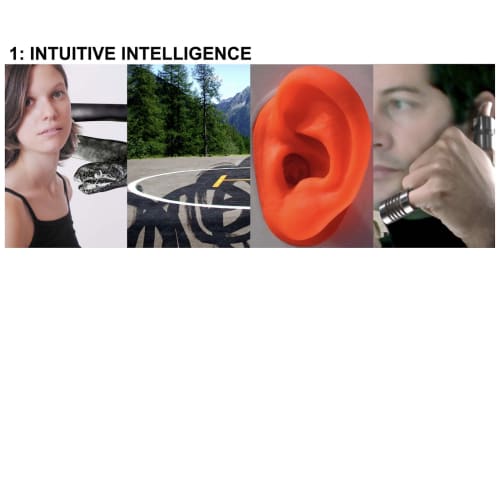A vision of a new world of consumers, from both east and west, sharing lifestyles, brands and values, emerged at a three-day Round Table of creative thinkers in the south of France. The consumer is king. How often has that cliché been repeated?
But creatives at a recent three-day brainstorming event in the south of France shared a growing sense that the phrase is more true than ever before – and that marketers and designers should pay close attention. The spread of good design at all price levels has encouraged the growth of a Hi-Lo consumer, who happily shops at both the discount and premium ends of the market simultaneously.
Lifestyle democracy? Design democracy? Call it what you will. "Fashion democracy" is a phrase that has been used at George, the budget fashion label created by Asda, the UK supermarket now owned by Wal-Mart. Shaheen Sadeghi, the pioneer behind West Coast retail projects The Lab, and CAMP, spoke of a new consciousness emerging among consumers – a sense of their own power and ability to make their own decisions.
While this consumer trend is dominant in the developed world, it was argued that the developing world will catch up quicker than we might think, particularly the sophisticated eastern seaboard cities of China. As part of this new wave of consumer power, consumers are benefiting from the internet and all its potential. The internet is giving power to the consumer and changing the way the world shops. It supplies a plethora of information to the consumer and has sparked a surge in choice, both of products and services.
One route to making sense of all this is to understand consumer priorities, a point made by Michelle Alfandari, president of MODA International Marketing, a full service licensing and marketing company based in New York. For example, in the search for a new car, do the consumer's concerns about the environment come first (in which case an SUV may get the thumbs-down in favour of a Toyota Prius) or do the consumer's concerns about the size and safety of his/her family take precedence (in which case the SUV might win outright)?
Besides Michelle Alfandari and Shaheen Sadeghi, the Style-Vision Round Table (staged at the Grand-Hotel du Cap-Ferrat, October 26 to 28) comprised managing directors, researchers, design managers, consultants and other creative thinkers from a wide range of sectors, some of whom were WGSN subscribers.
Style-Vision, based in Nice, provides future intelligence for design and marketing professionals and stages its Round Tables twice a year. WGSN has attended several of these since their inception. Style-Vision is best known for its Mood Consumption theory, which describes a shift away from mass- and marketing-led consumption. The company helps other companies to navigate through a new landscape surrounding the "mood consumers".
At the Round Table, every participant is given the opportunity to highlight a key trend that will be of relevance over the next three years. The Round Table is then divided into groups, which brainstorm their three key trends. On the final morning, a vote is taken as to which trend will be most prevalent.
Although lifestyle democracy and consumer power were recurring themes at the event, this year the winning theme was Intuitive Intelligence.
This trend explores the emergence of a world of soft values and emotional intelligence, with implications for both marketers and designers. This also taps into the increasing power of women as consumers and participants.
Nokia's Liisa Puolakka called for a move on from pure "style" in design and explored the concept of "feminine" logic applied to the technology industry. Christine Ahrend of Volkswagen's Future Affairs Research Group highlighted new thoughts in futuristic car design, with cars becoming "humanised" – more flexible and interactive.
Gender differences are blurring, argued some participants. Values and themes traditionally described as "feminine" or "masculine" no longer make much sense. Among other themes, two loomed large at the Round Table: Safety. Have safety and security become the ultimate luxury commodities?
Sohrab Vossoughi, founder and president of ZIBA Design, based in Portland, US, presented a flood of evidence to suggest that safety is currently high on the agenda of most consumers. The reasons for this include fears over terrorism, concerns about the environment, and the plethora of health and food scares.
Anchoring values. We are looking backwards in time for reassurance and embracing neo- conservative values in a reaction against too much hedonism, anti-social behaviour and the collapse of morality. This was the thesis advanced by William Higham of London-based trend consultancy Next Big Thing. These new consumers are traditionalists who reject many of the values of the 1960s generation. As Higham jokes: "For them, becoming a rebel is being a religious accountant."
Participants in Style-Vision Round Table
- Brechje Vissers, senior consultant, Philips Design
- Bruno Monte Jorge, product design manager, Global Technology Center, Unilever
- Dr. Christine Ahrend, Future Affairs Research Group, Volkswagen
- Kent Martinussen, head of Danish Architecture Centre
- Liisa Puolakka, senior design manager, Insight & Innovation, Nokia
- Luciana Stein, journalist
- Michel A Galopin, general
- Manager, Grand-Hotel du Cap-Ferrat
- Michael Hokenson, co- founder of Minlam Asset Management
- Michelle Alfandari, president, MODA International Marketing
- Mikkel Max Hansen, founder, Silentio Kommunikation
- Nicole Contencin
- Roger Tredre, editor-in- chief, WGSN
- Shaheen Sadeghi, CEO, The Lab
- Shannaz Schopfer de Villarreal, founder, Advanced Beauty Technologies
- Sohrab Vossoughi, president, ZIBA Design
- Tanja Fisher, senior design manager, Nokia
- William Higham, CEO, Next Big Thing
